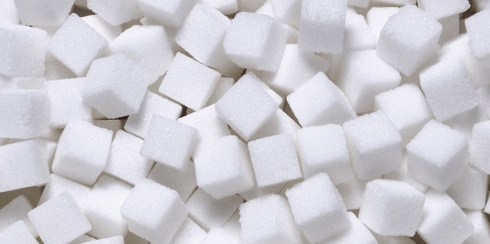Is Refined Sugar In Moderation Good For You?
One of the questions I get most often is, “Dr. Accurso, what do you eat on a daily basis?” To which my response is usually, it’s really not so much about what I eat but rather what I’ve decided to avoid (refined sugar). Once you know what to avoid then the good decisions become a lot more clear. Grocery shopping takes an hour instead of 3 hours, snacking becomes less complicated because there’s less choices and honestly, food tastes a whole lot better with simple ingredients.
Sugar, especially refined sugar has been long debated for centuries now.

My 5 year old phrases it perfectly, “Why did God make sugar if it’s so bad for us?” Great question right! To which my answer is always, “Sugar is only bad if you abuse it.” The sad reality is, America has taken foods that are meant to be enjoyed in moderation and super sized them. Have you ever spent a few minutes in the grocery store looking at ingredient labels? Companies have gone out of their way to put sugar in everything. There’s even sugar in salty foods.
Why?
Because it tastes good. The tip of our tongues have the highest sensitivity to sweet tastes and when exposed to it, our bodies crave energy and that’s exactly what that taste mimics. The sad part is, it’s not the fat burning, mind enhancing, physiology boosting kind of energy, it’s the exact opposite.
Did You Know The largest source of calories for individuals living in industrialized nations comes from refined sugar.
Sugar increases insulin levels, which promote fat accumulation and inflammation throughout the body. Sugar consumption and elevated insulin accelerate the aging process and create an environment conducive to degenerative disease.
The chemistry of sugar is based on the number of carbohydrates and includes monosaccharides, disaccharides and oligosaccharides. The most important monosaccharides are glucose, dextrose, and fructose. Monosaccharides are present in most foods in at least some amount, but are particularly high in foods such as ripe fruit, and honey. Monosaccharides are an important energy source, but when too much of these simple sugars are consumed at once-especially when they are not balanced by complex carbohydrates like oligosaccharides or polysaccharides that take longer to digest and thus help maintain sustained energy production-monosaccharides can cause heightened blood sugar, followed by an abrupt drop. The result is a surge of energy quickly followed by a feeling of being tired, shaky, or run-down soon afterward. This type of fluctuation in blood sugar, if it occurs frequently, can lead to blood sugar dysregulation conditions such as hypoglycemia and diabetes mellitus. Processed foods often add high amounts of monosaccharides such as fructose and glucose to promote a sweet taste, which sells more product, but does not sustain health.
The primary difference in these sugars is in the way they are digested and metabolized. Glucose and dextrose are basically the same form of sugar. Whenever I would take groups from our clinic on shopping tours I would always teach them how to point out a sugar. Many sugars can be identified by their characteristic “ose” ending. This is essentially how you can discover a lot of hidden sugars in your ingredients.
Many of these sugars also combine to form complex sugars such as sucrose. Sucrose, typical table sugar, is a disaccharide (2 sugar forms) that is half glucose and half fructose. Meanwhile, high fructose corn syrup is 55% fructose and 45% glucose. This type of sugar is 100 times worse than table sugar. The reason being is that it’s heated and extensively processed. If you’ve never watched King Corn, you owe it to yourself to do so. They reveal the uphauling process used to cook down and process corn into HFCS.
Massive Increase in Sugar Consumption

In the year 1700, the average individual consumed about 4 pounds of sugar each year. In 1800, it was about 18 pounds of sugar per year. In 1900, the average person ate 90 pounds of sugar per year. In 2009, the average individual consumes 150 pounds of sugar per year. Half of our society consumes ½ pound of sugar per day. Most of this is in unnatural, man-made forms such as sucrose and high fructose corn syrup.
Most forms of sugar (other than fructose based sources) metabolize quickly in the body into a simple glucose form. This glucose is then funneled into cells by the hormone insulin. This process is performed very well in our bodies when the cells are kept sensitive to the circulating insulin.
Lifestyle behaviors that lead to chronically elevated blood sugar and insulin levels cause a cellular resistance to insulin. These behaviors include excessive sugar intake, eating processed foods and sedentary lifestyle. Elevated blood sugar and insulin cause excessive free radical damage and inflammation throughout the body. Consuming sugar can also lead to micronutrient deficiencies due to the fact that sugar is an anti-nutrient. That means it requires some of the nutrients you already have stored in your body, in order to metabolise and process the sugar that you consume in your diet. The problem lies in that your run of the mill white table sugar is far from what sugar actually is when it’s pressed from the cane. Sugar is not normally white. The process it goes through looks something like a Frankenstein movie. When I perform Intracellular Micronutrient testing on an individual, often times it’s clear to see how much sugar is in there diet due to the many nutrients that are severely deficient causing extreme fatigue after a good nights sleep, significantly decreased energy in the middle of the day and trouble focusing on tasks.
The Major Problems with Elevated Sugar & Insulin Include:
- Mal-coordinates the immune system and reduces its functional ability.
- Creates significant Micronutrient Defincies
- Lays the ground work for Hormone Imbalances and mood swings
- Dehydrates the cells and depletes the body of critical electrolytes such as potassium, magnesium, calcium, & sodium leading to cell death and chronic muscle spasms.
- Depletes the body of chromium, copper, & zinc and other trace minerals that help sensitize cells to insulin. This further accelerates cell membrane insulin resistance
- Induces cancer cell division and proliferation and inhibits mechanisms that slow down tumor growth and inhibit cancer cell apoptosis (programed cell death)
- Creates tissue damaging Advanced Glycolytic Enzymes (AGE’s)
- Depletes the body of anti-oxidants such as glutathione, vitamin C & vitamin E.
- Inhibits Human Growth Hormone (HGH) and elevates cortisol levels
- Inhibits cellular protein synthesis which results in dysfunctional bone, muscle, and joint chemistry. This accelerates the risk of osteoporosis, osteoarthritis, and chronic muscle and joint pain.
- Promotes the growth of pathogenic bacteria and parasites such as Candida and other yeast like organisms. This also depletes the body of good bacteria and can lead to chronic infections in the gut, respiratory tissue and sinuses.
- Leads to obesity, elevated triglycerides, abnormal LDL:HDL cholesterol levels, elevated arterial inflammatory risk factors.
- Opens up the blood brain barrier, depletes the brain of trace mineral stores and allows toxins and other heavy metals to accumulate in brain tissue
- Destroys nerves leading to chronic pain, neuropathies, vision disorders, and accelerated organ dysfunction.
The fact is, your performance is massively affected by the overconsumption of sugar!
Whether you’re a hard hitting executive or you’re a passionate mother who wants to take her home schooling to the next level, making sure inflammation is being driven out of your body is the number one way to stay clear of disease and begin thriving in all areas of your life.
So why sugar? Why give up the one thing that’s so satisfying and tastes so good!?
Simply put. It is an antinutrient. It actually depletes the good nutrients in your body because your body is using them all up to get rid of the sugar. This is bad news considering sugar is one of the main culprits in leaky gut syndrome as well as chronic fatigue, headaches, brain fog and restless leg.
Cancer also has a favorite food which is sugar. Cancer cells need fuel to thrive. Sugar is like fuel for the fire. The first thing I get someone dealing with cancer to give up is sugar. Since sugar is in everything these days we have become Sugar Desensitized. We don’t see as a lethal ingredient because it’s all around us. Never mind diabetes has tripled in kids in over the past 20 years and so has sugar consumption ironically enough. Out of the tens of thousands of health patients I’ve seen over the years I can testify that EVERY time they heeded my sugar detoxification plan, they would almost immediately begin to see results in their energy, skin, productivity, sleep and overall feeling of well being.
I’m always asked, “what’s too much sugar?”
I’m an advocate of treating yourself to vacation foods. Once a month I will indulge in a treat that may have sugar or I may be at a family gathering and someone is forcing my hand into a blueberry cake. Whatever it is, I always let myself indulge. Let yourself have treats but also know when to say no. If you have an abnormally vicious sweet tooth then you must have healthy treats around you or else you’ll go crazy. Check out my friend Juli’s website for some amazing healthy treats that will satisfy your cravings without sending your body into an inflammation coma.
To find out more about your health and whether a customized approach is the way to go for you, take our free High Performance Quiz. Click below!
Sources For This Article Include
Lights Out: Sleep, Sugar and Survival by T.S. Wiley
http://en.wikipedia.org/wiki/Dextrose
http://articles.mercola.com/sites/articles/archive/2010/04/20/sugar-dangers.aspx
http://www.everydayhealth.com/columns/johannah-sakimura-nutrition-sleuth/antinutrients-are-nothing-to-fear/





